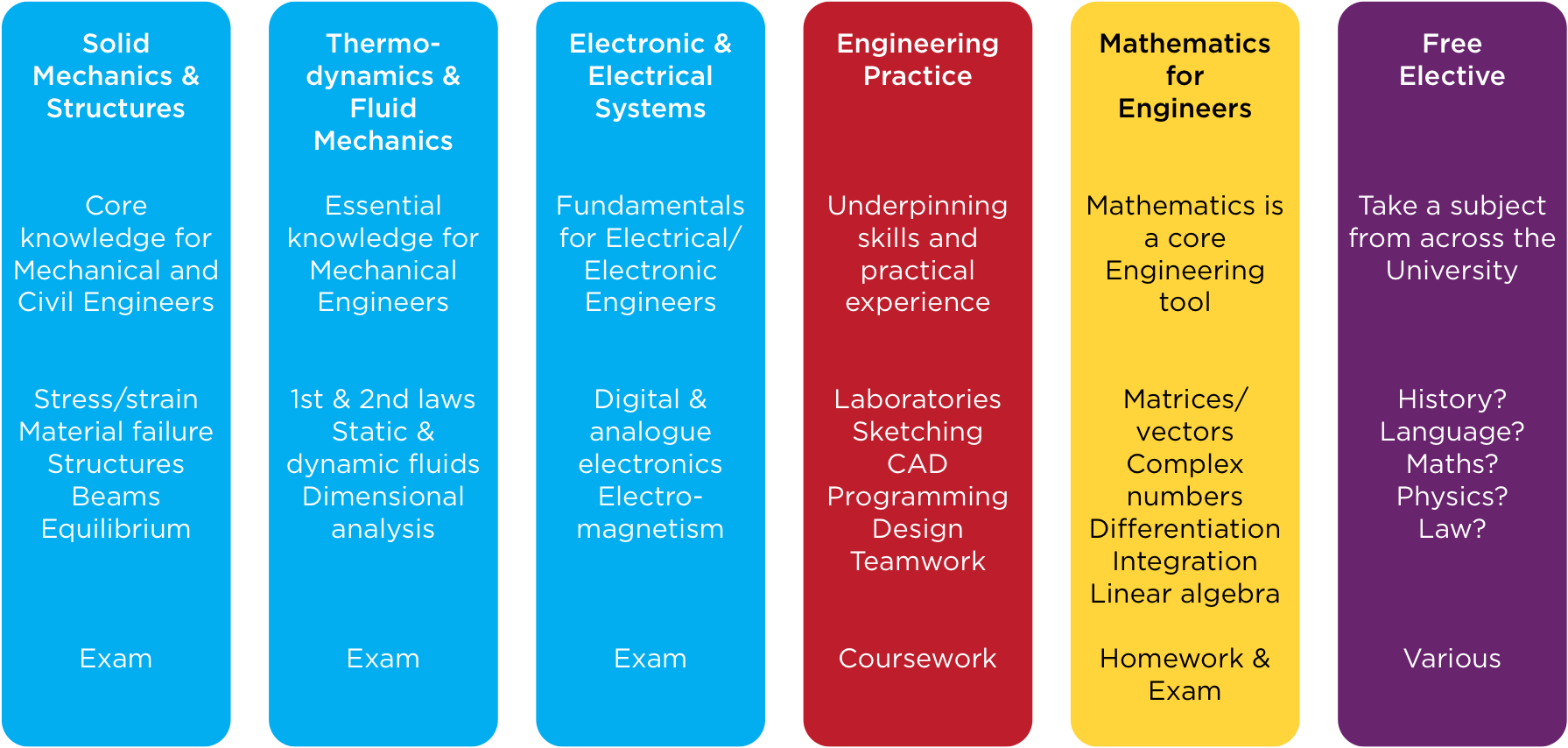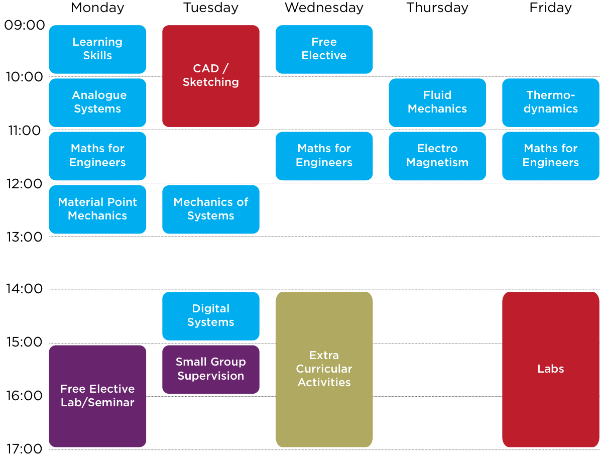1st Year Engineering
The first year of the Engineering course is designed to teach you core engineering knowledge across Civil, Mechanical, Electronic and Electrical Engineering as well as to equip you with essential mathematics tools that you will use to solve your engineering problems. You will also get hands-on experience through weekly laboratories and an intensive practical engineering skills course at the end of the academic year.
Our first year is split into six modules: three on engineering theory, one on practical engineering skills/design, one on mathematics plus a free elective module from across the University. One of the engineering theory modules is focused on Solid Mechanics and Structures, where are students learn about stress, strain and failure of engineering materials as well as understanding structural actions and the behavior of beams. The Thermodynamics and Fluid Mechanics module focused on the behavior of fluids in static and dynamic situations as well as how the fundamental laws of thermodynamics can be applied to engineering problems. The final engineering theory module is focused on electromagnetism, core knowledge for understanding electrical machines, as well as analogue and digital electronics. The Engineering Practice module will develop your practical skills via weekly laboratories that are designed to reinforce the taught content. You will also be taught how to use Computer Aided Design (CAD) to design engineering components, control microprocessors and implement your scientific knowledge into computer code, and sharpen your sketching skills to help you communicate your engineering ideas and solutions.

The problem-solving skills and engineering knowledge that you learn over the academic year will be applied to a team Engineering Design project in the second term. The projects are aligned to the Institute of Mechanical Engineers’ (iMechE) Design Challenges and each year our students’ best designs go on to compete in the Regional Heats and National Finals. In 2019 Durham students won both the Poster and Presentation competitions and in 2018 Durham students were the National Champions!
How does this all fit together? The example timetable shown below provides an indication of how you will be spending your time. The blue blocks are lectures, the red blocks are laboratories/practical sessions and the purple blocks are smaller group classes. Wednesday afternoons are kept free for extracurricular activities. On average you will have two lectures per week per module.



/prod01/prodbucket01/media/durham-university/departments-/engineering/74202-5112X1676.jpg)